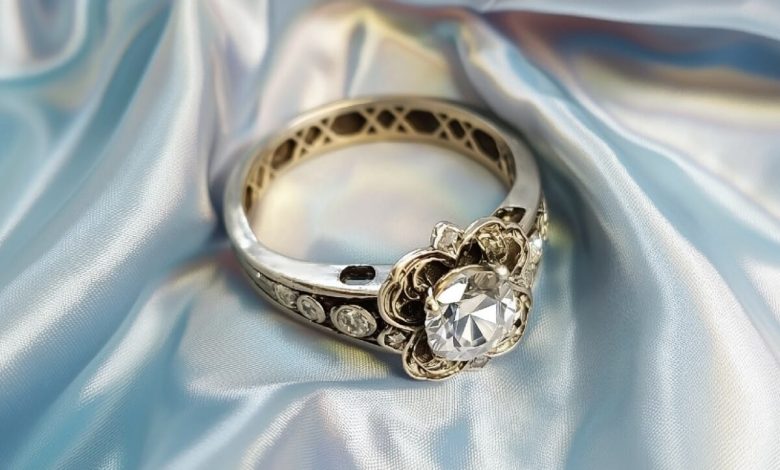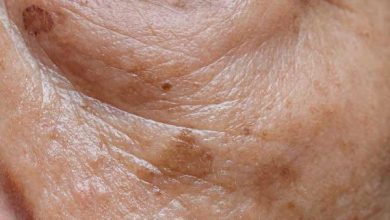DIY Jewelry Cleaner: Save Money and Shine Bright with This Homemade Solution

Jewelry has the remarkable ability to elevate our appearance and make us feel special. However, over time, even the most cherished pieces can lose their luster due to dirt, oils, and tarnish. While commercial jewelry cleaners are readily available, they often contain harsh chemicals that can damage delicate gems and metals. The good news is that you can maintain your jewelry’s brilliance using a simple and effective technique with ingredients you probably already have at home. Say goodbye to store-bought jewelry cleaners and hello to a DIY solution that works wonders.
ADVERTISEMENT
The Secrets Behind the Perfect Recipe
Creating the perfect DIY jewelry cleaner hinges on the right combination of ingredients and a proper understanding of their roles. Here are the secrets behind this effective recipe:
ADVERTISEMENT
Balance of Ingredients
The right proportions of salt, baking soda, and dish detergent ensure a thorough clean without damaging your jewelry.
ADVERTISEMENT
Chemical Reaction
The ion exchange process triggered by aluminum foil is crucial. It helps lift tarnish and grime from the jewelry to the foil.
Gentle Abrasives
Using salt and baking soda provides gentle abrasion to remove dirt without scratching the surface.
Degreasing Power
Dish detergent effectively breaks down oils and residues, ensuring a sparkling finish.
Soaking Time
Allowing enough time for the solution to work is essential. A 10-15 minute soak ensures all the grime is lifted.
The DIY Jewelry Cleaning Solution
This technique uses a combination of common household items to create a safe and effective jewelry cleaner. Here’s what you’ll need:
| Ingredient | Quantity |
|---|---|
| Dish Detergent | 1 tablespoon |
| Salt | 1 tablespoon |
| Aluminum Foil | 1 piece |
| Baking Soda | 1 tablespoon |
| Water | 1 cup |
| Small Bowl | 1 |
Why This Technique Works
Salt and Baking Soda
Salt and baking soda are both gentle abrasive agents that help to remove dirt, tarnish, and grime from jewelry surfaces without causing any damage. They work together to break down and dissolve the buildup that accumulates over time, leaving your jewelry sparkling clean.
Dish Detergent
Dish detergent is an effective degreaser, cutting through oils and residues that can accumulate on your jewelry. This ingredient is particularly useful for removing oils from your skin, lotions, and other products that might dull your jewelry’s shine.
Aluminum Foil
Aluminum foil is a key component of this technique. When combined with the other ingredients and immersed in water, it creates a simple chemical reaction known as ion exchange. This reaction helps to dislodge tarnish and dirt from your jewelry and transfer it to the foil, leaving your jewelry looking revitalized.
Water
Water is used to create the solution and facilitate the chemical reaction. It helps to distribute the cleaning agents and ensure they come into contact with the jewelry’s surface.
Using the Technique
Follow these steps to clean your jewelry using the DIY solution:
Step 1: Line the Bowl with Aluminum Foil
Start by placing a piece of aluminum foil at the bottom of the small bowl. Make sure the shiny side is facing up.
Step 2: Add the Ingredients
Combine the salt, baking soda, and dish detergent in the bowl on top of the aluminum foil.
Step 3: Pour in Water
Gently pour in the cup of water, creating a solution that covers the jewelry.
Step 4: Submerge the Jewelry
Carefully place your jewelry in the solution, ensuring that each piece is fully submerged.
Step 5: Let It Sit
Allow the jewelry to soak in the solution for about 10-15 minutes. During this time, the chemical reaction will work to remove tarnish and dirt.
Step 6: Gently Scrub and Rinse
After soaking, use a soft-bristle toothbrush or a gentle cloth to lightly scrub your jewelry, paying special attention to intricate details and hard-to-reach areas. Rinse the jewelry under cold water to remove any remaining solution.
Step 7: Pat Dry
Gently pat your jewelry dry with a clean, soft cloth. Avoid using tissues or paper towels, as they can scratch the metal.




